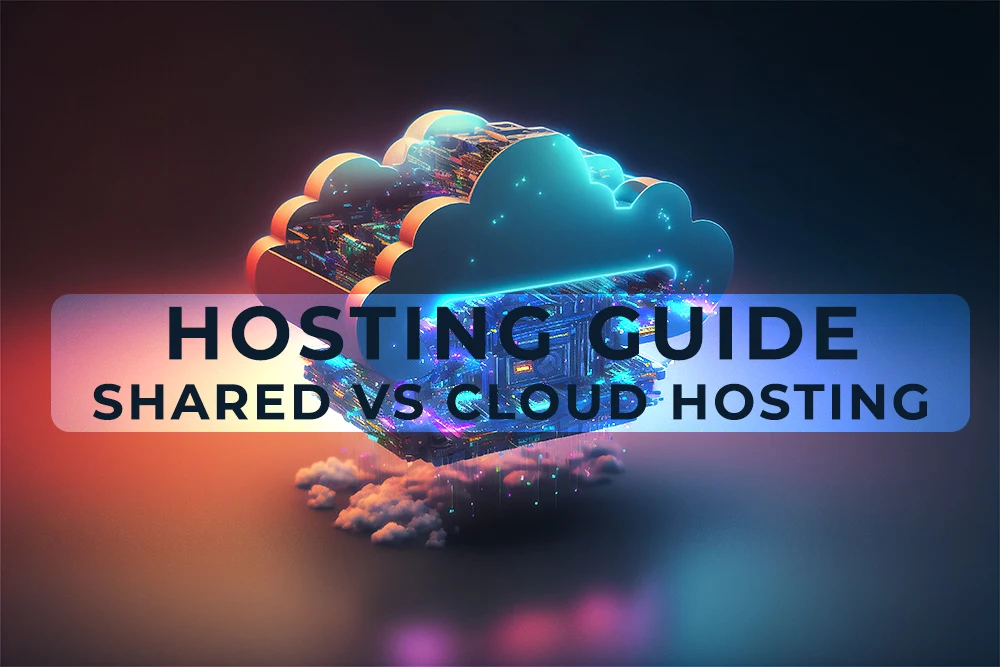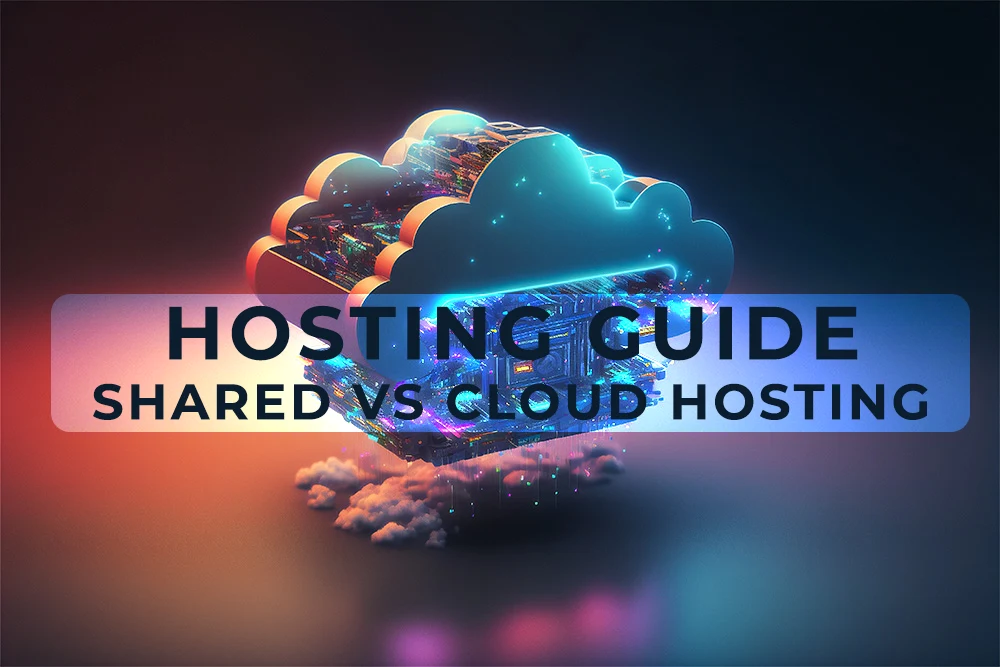Hosting
Choosing Hosting: Shared vs Cloud Hosting

Learn the differences between shared and cloud hosting.
Choosing the right hosting solution for your website is a critical decision. There are various types of hosting available, including Shared Hosting and Cloud Hosting. In this article, we’ll take a look at the differences between the two and provide guidance on how to make the best decision for your business.
Also Read… 300 + Best Unique Small Business Ideas In 2024
What is Shared Hosting?
Shared hosting is the most basic form of hosting, and is usually the first choice for businesses on a limited budget. With shared hosting, you get a single server that is shared among multiple customers. This means that all customers on the server are using the same resources which can lead to slower speeds and lower security.
What is Cloud Hosting?
Cloud hosting is a more modern approach to hosting, and it avoids many of the drawbacks associated with shared hosting. Unlike with shared hosting, cloud hosting requires multiple servers that are connected together. This provides more flexibility and scalability, and it also reduces the risk of performance or security issues caused by one server not being able to handle the workload of multiple clients.
Shared Hosting: Pros and Cons
Shared hosting is a great option for businesses on a limited budget. It is usually cheaper than other types of hosting and it is easy to set up and manage. The biggest drawback of shared hosting is that it does not provide the same level of performance or security as cloud hosting.
Cloud Hosting: Pros and Cons
The biggest advantage of cloud hosting is that it provides more flexibility and scalability than shared hosting. Cloud hosting also provides more reliable performance and higher levels of security. However, it is more expensive than shared hosting and can be more difficult to set up and manage.
Security Considerations
Security is an important consideration when choosing hosting. With shared hosting, the risk of security breaches is higher due to the shared resources of the server. With cloud hosting, the risk of security breaches is lower due to the distributed nature of the servers.
Also Read… VPS Hosting Guide
Performance Comparison
Performance is another important consideration when choosing hosting. Shared hosting tends to have slower speeds and lower reliability than cloud hosting. Cloud hosting provides faster speeds and more reliable performance due to the distributed nature of the servers.
Reliability and Uptime
Reliability and uptime are also important considerations when choosing hosting. Shared hosting tends to have higher levels of downtime due to the shared resources of the server. Cloud hosting provides more reliable performance and higher levels of uptime due to the distributed nature of the servers.
Also Read… 400+ Profitable Ecommerce Business Ideas in 2023
Price Comparison
Price is another major consideration when choosing hosting. Shared hosting is usually cheaper than cloud hosting, but it does not provide the same level of performance or security. Cloud hosting is usually more expensive, but it provides more reliable performance and higher levels of security.
Scalability
Scalability is an important consideration when choosing hosting. Shared hosting is not very scalable because all customers are using the same resources. Cloud hosting is more scalable because each customer has their own dedicated resources.
Making the Decision
Choosing between shared hosting and cloud hosting is an important decision for any business. It is important to consider all of the factors involved including price, performance, security, scalability, and uptime. Ultimately, the best hosting solution for your business will depend on your specific needs.
Choosing the right hosting solution for your business is an important decision. Shared hosting provides a low-cost option with limited performance and security, while cloud hosting provides more reliable performance and higher levels of security at a higher cost. Weighing the pros and cons of both options is the best way to make the right decision for your business.

Also Read…Online Business Ideas in 2024
Frequently Asked FAQ Questions
What is a shared server?
A shared server is a hosting environment where multiple websites share the resources of a single server. This means that server resources like CPU, RAM, and storage are divided among several users, and each website gets a portion of these resources.
What is cloud hosting?
Cloud hosting is a system where your website’s resources are spread across multiple interconnected servers. Instead of relying on a single server, a network of servers acts as one system, ensuring data redundancy and resource scalability.
How do costs compare between the two?
Shared hosting is generally more affordable since multiple users share the costs of maintaining a single server. Cloud hosting, with its scalable and redundant infrastructure, tends to be more expensive but offers more flexibility in terms of resource allocation.
Which is more scalable: shared server or cloud hosting?
Cloud hosting is inherently more scalable. If your website experiences a sudden surge in traffic or needs more resources, cloud hosting can easily allocate additional resources from the network of servers. With shared hosting, you’re limited to the resources of the single server you’re on.
How do performance and reliability compare between the two?
Cloud hosting typically offers better performance and reliability. Since resources are spread across multiple servers, if one server fails, another can take over, ensuring minimal downtime. Shared hosting, on the other hand, can suffer from resource contention if one website on the server uses up a disproportionate amount of resources, potentially slowing down other sites.
Which is better for beginners or small websites?
Shared hosting is often recommended for beginners or small websites due to its simplicity and cost-effectiveness. It’s a suitable choice for sites that don’t expect massive traffic and don’t have extensive resource requirements.
How do security measures compare between shared and cloud hosting?
Both hosting types can be secure if managed correctly. However, shared hosting can have vulnerabilities if one website on the server gets compromised, potentially affecting others. Cloud hosting environments often come with more advanced security features and isolation measures, but the specifics can vary based on the provider.
Can I switch between shared and cloud hosting?
Yes, many hosting providers offer migration services or tools to help you move from shared hosting to cloud hosting (or vice versa) based on your website’s needs and growth.
Is cloud hosting faster than shared hosting?
Generally, cloud hosting tends to offer better performance and speed compared to shared hosting. This is because cloud hosting can pull resources from multiple servers, ensuring consistent performance even during traffic spikes.
Does server location affect speed?
Yes, the physical distance between the server and the website visitor can impact loading times. Many cloud hosting providers offer Content Delivery Network (CDN) integration, which stores cached versions of the website on multiple servers worldwide, ensuring faster load times for users regardless of their location.






